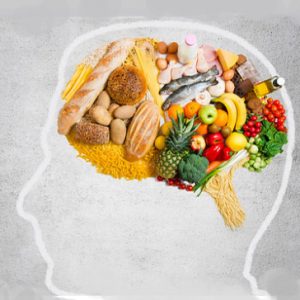Superfoods
Chia Who? – The Superfood Trend “I have a green smoothie every morning with chia seeds and acai berries, you should try it too! I feel so fit and healthy!” Have you ever heard this or a similar sentence in your life? In recent years, more and more people have been talking about superfoods. There are many new restaurants with superfoods on the menu and a sharp increase in coverage of superfoods in beauty, health and nutrition magazines. Increasing concerns about health and aging society appear to be an important driver of the superfood trend in Europe, as a rapid...
Measuring Behavior in 3-Year-Olds
To investigate whether nutrition plays a role in inhibitory control and executive functioning early in life, we collected data on behavior using a variety of different tasks (see previous blog). To perform these tasks, we chose to visit the children at home with the aim of reducing the burden the families and to test the children in their home environments, where they are probably more at ease. Testing 3-year-old children is fun and challenging at the same time. I will share some anecdotes and experiences of my data collection as inspiration for others testing young children. AttentionSome tasks had lengthy...
Should You Prepare for Grocery Shopping? The Role of Hunger.
Have you ever done your weekly grocery shopping and ended up with more than actually written on your grocery list? Everybody has at least once experienced how it is to buy food in a supermarket with hunger and buy much more than planned. The widely known recommendation: Never go grocery shopping when you are hungry!!! But is it only a myth or is there a grain of truth in that advice? What exactly is the issue with going grocery shopping when you are hungry? If you do you probably buy more food than you need and planned to buy. Additionally,...
Stress and Nutrition: Hungry Brain
In times of stress, there are mainly two eating patterns in which people react: some tend to eat less, some eat more [1]. The latter then, unfortunately, develop a desire for more salty, sweet and fatty foods, leading to negative health consequences such as weight gain [2] which in turn may influence their mental health. But why does this happen? What is the science behind this? The brain controls our body functions and continuously adapts to new situations. For the survival of humans, it is essential that the brain is sufficiently energized at all times. Under stress, the brain needs more energy than under normal circumstances leading the brain to act in a selfish manner...
What is a Healthy Diet?
A healthy diet has numerous benefits. But what does a healthy diet consist of? And how do we, researchers, measure diet quality? What’s considered a healthy diet in one country or culture, may not be regarded as such in another. For instance, low-fat and unsweetened dairy products are regarded as healthy in my country, the Netherlands, but not in many Asian countries where a vast proportion of the population is lactose intolerant. Differences in regional availability of foods further determine dietary habits across, and even within, countries. Fish, for example, is often at the core of a healthy diet in...
Nutrition and Psychiatry: Experience of Attending the 19th WPA World Congress of Psychiatry
Recently I had a great chance to participate in the 19th WPA World Congress of Psychiatry which took place in Lisbon 21-24 of August 2019. Such an international scientific event summarizes recent findings and sets a trend for future research. The effect of lifestyle on mental health was one of the topics discussed at the conference. Focusing on nutritional impact in psychiatry I will review here some of the studies – research done in animal models or patients and literature reviews – which were presented at the Congress. All the poster presentations can be viewed on the conference website https://2019.wcp-congress.com/. Dietary...
How the Gene Called TFAP2B May Increase the Risk for Obesity
The prevalence of overweight and obesity has increased worldwide and is affecting millions of adults and children [1]. The development of obesity is complex with factors like genetics, individual metabolism, dietary and physical activity choices, food and water availability, education and culture, playing a role [2]. Several genome-wide association studies have revealed an association between obesity and the gene encoding the transcription factor AP-2 beta (TFAP2B) [3, 4]. TFAP2B plays an important role during the early stages of pregnancy in the development of different parts of the nervous [5]...
How Eating Healthy Can Keep You Mentally Healthy
Mens sana in corpore sano – healthy mind and healthy body. Food insecurity – defined as an individual or household lacking access to sufficient, safe, and nutritious food that meets individuals’ dietary needs – has been linked to children’s behavioral, academic, and emotional problems and an increased risk of the development of mental health disorders [1,2]. In a Canadian study on food insecurity in young children, researchers found that children from food-insecure families were disproportionately likely to experience persistent symptoms of hyperactivity and inattention. These results were still true after controlling for immigrant status, family structure, maternal age at child’s birth, family income, maternal and paternal education, prenatal tobacco exposure, maternal and paternal depression and negative parenting [3]...
Twin Studies: A Unique Epidemiological Tool
Twin studies have been used for decades to estimate the relative importance of genes and environments for traits, behaviors and disorders. A very large meta-analysis of all twin studies conducted during the past 50 years (almost 3000 publications) revealed that across all studied traits the average reported heritability was 49%, meaning that about 50% of the variation in traits is due to genetic factors [1]. 1. Methods and theory of classical twin design. By comparing the differences and similarities between twins, researchers use them as a natural experiment to study whether a trait, phenotype or disease is due to nature (genetic predisposition) or nurture (environmental factors)...
How to encourage children with neurodevelopmental disorders to live healthy?!
Neurodevelopmental disorders such as attention deficit disorder (ADHD), autism spectrum disorder (ASS) and different types of anxiety disorders are associated with a higher risk of poor dietary, physical activity and sleep habits. Shaping behavior in children with neurodevelopmental symptoms can be challenging [1]. How do parents experience teach healthy habits to these children? What tips and tricks are there to encourage your child to live healthily? We put together the results of a recent study conducted in Boston and our own results from a qualitative interview with parents of children that followed the TRACE-diet [2] to help you encourage your child to be healthy...









